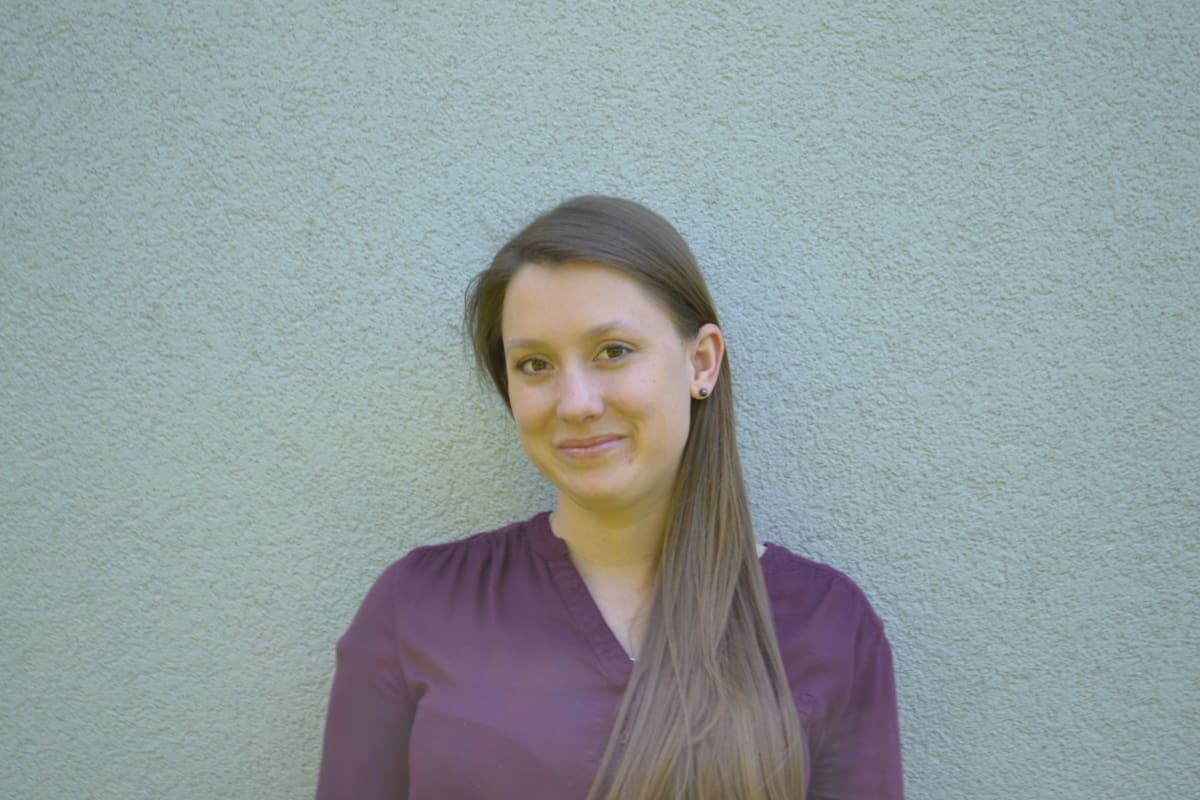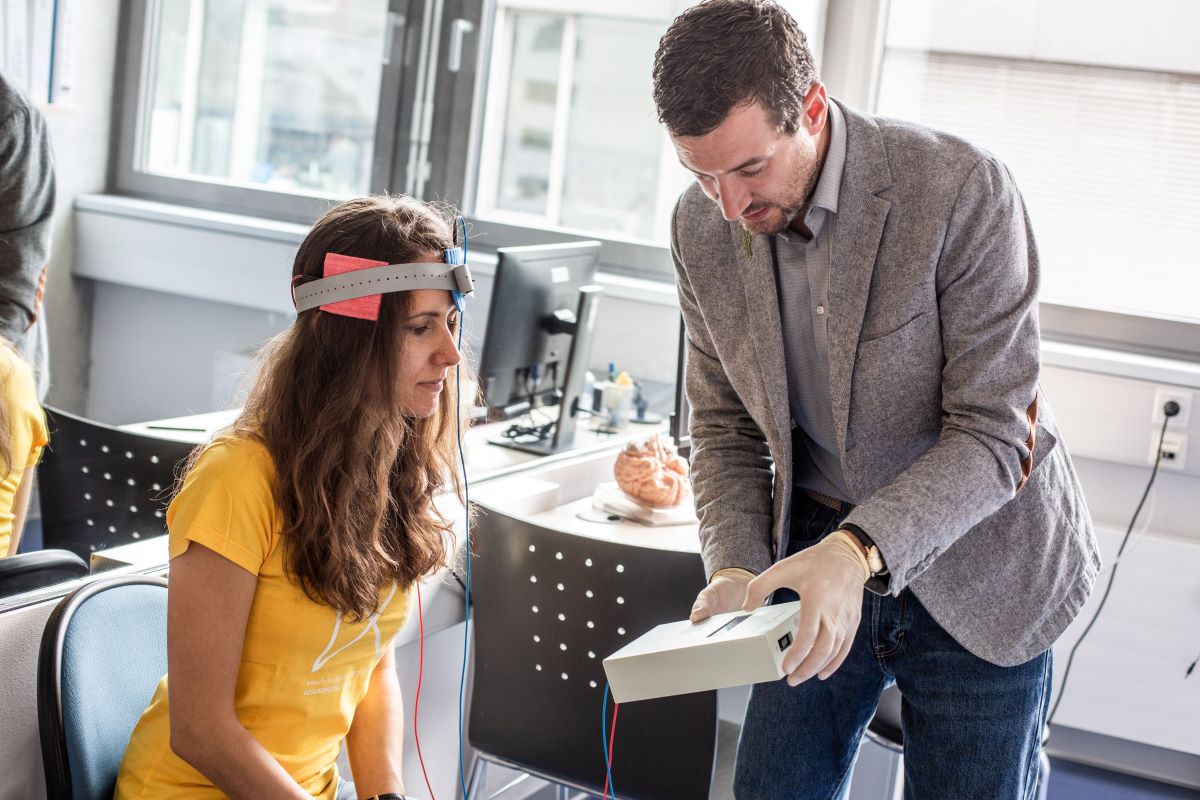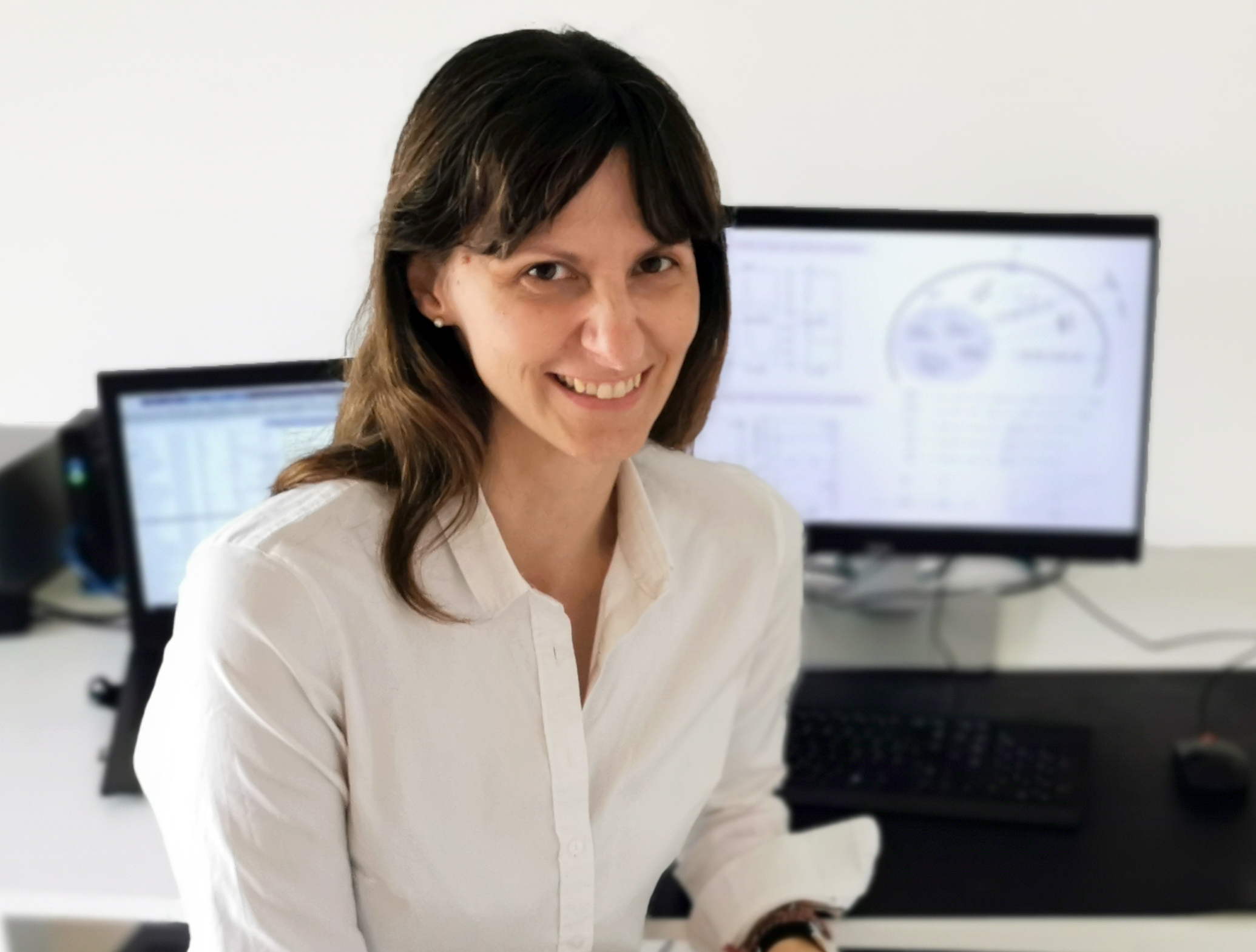Johanna Sumper benefits directly and greatly from the Master’s programme in System Test Engineering in her professional work in the Component Verification and System Validation department at Infineon Technologies. In the following interview, she tells us which specific aspects were particularly interesting for her and enriched her professional life.
“I can apply 80% of the study content directly to my work.”
Elisabeth Dehm, 26. June 2023
Foto: Johanna Sumper
What were your reasons for applying for the “System Test Engineering” (STM) degree programme at FH JOANNEUM Graz?
Originally, after completing my technical upper-level secondary school (HTL) with a focus on biomedical engineering, I started studying Environmental Systems Science with Business Administration at Karl Franzens University. Meanwhile, I got a job at Infineon by chance and worked a lot in the lab. I particularly liked the latter. That’s why I became aware of the then new degree programme in
“System Test Engineering“. I then switched to a bachelor’s degree programme at TU Graz so that I could apply for “System Test Engineering” at FH JOANNEUM with this degree.
Where did the interest in precisely this “System Test Engineering” degree programme come from?
The exciting thing is that this is wanted by the industry. That makes a complete difference: many professors come directly from industry and 80% of the content that occurs in the degree programme is directly relevant to my work (at Infineon). What I learn in the degree programme, I apply directly in practice. Moreover, this special field of study does not exist at any university or other university of applied sciences, which makes it particularly unique.
Which course was of particular interest to you?
For me, the course Test Standards was particularly exciting, especially the aspect of Functional Safety: This is highly relevant for practical work and I had many points of contact with it in my job. Again and again I notice that many people do not have this area “on their radar”, although it is very central. In addition, the lecturer contributed a lot to enriching my previous knowledge through his interesting design.
Which course did you find particularly relevant for your job or career?
In the first semester, I found System Requirements and Testing particularly stimulating and important: In practice, many people need a long time to understand the connection between requirements and testing. In other studies or even in work, you don’t learn the theory behind it, so this is also a great and essential novelty in the “System Test Engineering” degree programme.
Through your educational path you are familiar with various educational institutions (in Graz): What advantages does the FH JOANNEUM offer from your point of view?
A big advantage of the FH JOANNEUM is that all exams can be completed quickly at the end of the semester and you can therefore finish your studies in a fixed period of time. In addition, you can specialise more in your studies at the FH JOANNEUM and you feel a kind of “class feeling” in the small group – this is much more personal than at university, for example. This also applies to the relationship with the lecturers: At the FH JOANNEUM I am a person and not a number, the support and approach is very personal. It’s also easy to find internships at the FH JOANNEUM. Furthermore, it is pleasant that my feedback is taken seriously and immediately implemented in measures.
How do you feel about the team spirit among “System Test Engineering” students?
There are four Europeans in my year, and many of my fellow students are from India and Pakistan. It is very interesting to work with international fellow students. Because of the different Bachelor’s programmes, our teachers also start with the basics. The advantage for me was that even with my Bachelor’s degree, which was not purely technical, I was able to connect well. However, I also benefited a lot from education at HTL.
What is the topic of your Master’s thesis?
I am writing this together with Infineon. I’m not allowed to give away details, but I work in Component Verification and System Validation, which is all about testing chips.
Where do you see yourself in the future in professional terms?
As before, my future lies in the technical area at Infineon.
To what extent does studying enrich your professional life?
The programme broadened my field of vision from the basics of my interdisciplinary bachelor’s degree to cover a wide range of approaches to a topic. For example, in the third semester I decided to focus on System Testing (instead of Semiconductor Testing, which would have been the obvious choice with regard to my job) and I gained another insight into the automotive industry and the work of the two companies AVL and Magna Steyr.
To whom do you recommend the “System Test Engineering” degree programme?
Definitely for all HTL graduates who return to technology after completing a bachelor’s degree in the natural sciences. After graduating with a Master’s degree, you are sure to get a job, because trained people are in great demand in this industry. Testing will also become even more important in the future than it has been so far, because really everything has to be tested. The field of testing is simply huge: whether in the semiconductor industry, in analogue or digital testing, or in automotive development at vehicle or system level. The wide-ranging “System Test Engineering” degree programme prepares students for all professional fields thanks to the different focal points.
Tip
Further information about the study programme can be found at: „System Test Engineering“










